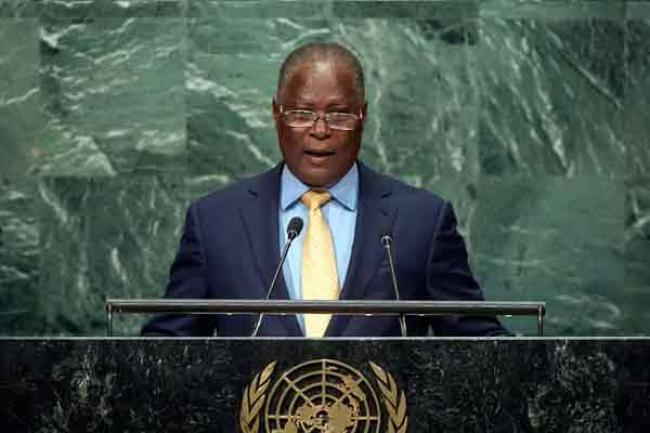Just Earth News 24 Sep 2016, 05:22 pm Print

Cia Pak
“The Government of Haiti has noted with the greatest interest the Secretary-General’s statements with regard to two issues which make the (UN) Organization uncomfortable, the multiple cases of sexual abuse perpetrated by the ‘blue helmets’ and the introduction of cholera into Haiti,” he told the Assembly’s annual general debate.
“The UN’s acknowledgement of its responsibility in the second issue opens the way for real discussions on the obligation to definitively eliminate cholera from Haiti,” he stated.
The UN Stabilization Mission in Haiti (MINUSTAH), which currently numbers nearly 5,000 uniformed personnel, was set up 12 years ago to help restore peace and stability and took on added functions following the devastating earthquake in 2010.
The cholera outbreak has affected an estimated 780,000 people and claimed the lives of over 9,100 people. The disease is typically contracted through contaminated food or water.
“We want to hope that the Secretary-General’s urgent appeal for a substantially reinforced battle plan against cholera and to aid the victims and their near ones will be heard and fully meet the expectations of the Haitian people,” Privert said.
Last month, noting that a United States Federal appeals court upheld the UNs’ immunity from a damage claim filed on behalf of the cholera victims, Ban said he deeply regretted the “terrible suffering” of the Haitian people and the UN had a moral responsibility to the support the victims and the country in overcoming the epidemic.
He added that he is actively working to develop a package to provide material aid and support to those most directly affected, improve access to care and treatment and address the longer-term issues of water, sanitation and health systems and urged Member States to make the severe funding shortfalls hobbling these efforts despite repeated appeals.
Privert also called for UN reforms, including enlargement of the 15-member Security Council, and declared his country’s support for the Organization’s efforts to improve its peacekeeping operations, fight pandemics and other health crises, and promote democracy and human rights while also economic, social and cultural rights.
- Coffee and tea: This everyday drink may help protect your brain from dementia
- Happy Chocolate Day! The sweet secret behind chocolate’s hidden benefits
- Cambridge study finds menopause affects memory, mood, and sleep
- Nipah horror returns: WHO confirms death of a woman in Bangladesh
- Falling birth rates blamed on COVID shots? New research says think again





-1763561110.jpg)
